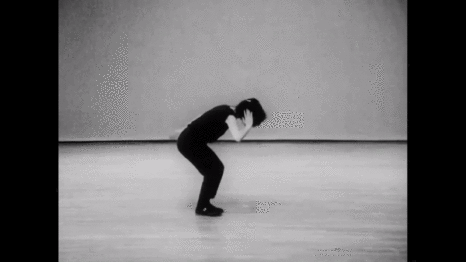Review: Broadchurch Season 3 – Finally a TV season I can stand behind
- Alana Zucca, Nightingale
This week we bring you a review of the TV Show Broadchurch by one of our editors and current literary interns, Alana Zucca. We hope you enjoy her review of how the show handles sexual assault. Do you agree with her? Let us know in the comments or submit your own review on a piece of media!

Review: Broadchurch: Season 3 – Finally a Tv season I can stand behind
by Alana Zucca
As many of you already know, survivorship reflected in mainstream television often perpetuates the problem rather than reflecting the reality of sexual violence. Broadchurch’s Season 3 is an eight-episode investigation into a serial rapist preying on a small community. For the first time while watching a show, I witnessed a mainstream TV series convey the complexity of trauma by providing audiences with an in-depth portrayal of the investigative and healing processes a survivor experiences after reporting a sexual assault.
There are many aspects of this TV show that made me support how they portrayed the topic of sexual violence. What initially pulled me in was the protagonists – two local detectives who immediately believed the survivor and corrected a detective who cast doubt against her claims. It was also refreshing to see a male detective handle the topic of sexual violence in a way that supported and advocated for the survivors. Finally! This is what got me invested in this season. Male detectives often contribute to the problem rather than help survivors so seeing this interpretation involve a supportive male figure was such a relief. The show’s protagonists furthered their character development through their determination to find the man who was assaulting women in their community and even pointed out injustices in their local system like not being given enough resources to investigate these crimes since their bosses didn’t view them as a priority.
I also appreciated that while they showed many difficult aspects of reporting, they didn’t include a rape scene. This is extremely important since it is common for media to include a rape scene in their portrayals of sexual violence. This can be very triggering for survivors and doesn’t contribute anything besides shock value to the narrative of the story. Rather than include a rape scene, they showed what happened before as well as the re-traumatization that occurred afterwards at the hospital and during police interviews. The show conveyed the process of coping with a serious trauma by sharing with audiences the survivor’s journey towards healing. Broadchurch also included a part of their show dedicated to portraying a program in Britain that gives survivors an advocate who was there to support them throughout the investigative and healing processes. The addition of this character was an important way that this series taught audiences how there are resources out there for survivors after they experience trauma. They specifically communicated that the survivor was “not alone” and that there are people to support her. This is so critical since the aftermath of trauma can be extremely isolating.
Broadchurch was able to share with audiences the perpetual problem regarding sexual violence and how even if everything goes “right” and the attacker is caught, it’s still a long and difficult healing process for survivors. They also show survivors’ fears of coming forward due to society’s tendency to shame women who report. By including this part of the plot, they were able to contribute to the conversation by criticizing the continuous shame of survivors who report. This series includes detectives that actually take these complaints seriously who are adamant about catching the perpetrator. Broadchurch unfolds the mental health struggle that often coincides with a serious trauma and the support needed to come out the other side. There is also a scene in which all the women in the community meet in support of those who have come forward about sexual assault and host a vigil in their honor. It was a beautiful way to show women supporting women in the fight against sexual violence that is perpetuated in society. Within eight 45- minute episodes, Broadchurch exemplifies the reality of survivorship during the investigative and coping processes. Although no trauma or healing journey is the same, Broadchurch is still able to convey the ups and downs of learning to cope with a serious trauma.
In spite of all of this, just because I am in support of this show’s depiction of survivorship, doesn’t mean I’m suggesting everyone should immediately watch it. It’s still an extremely heavy show that covers sexual violence, stalking, grief, and suicide in a very real way. It’s not lighthearted in any capacity and anyone who watches this series needs to be in the right mental space to handle a show that depicts such serious topics in a brutally honest manner. I hope that those reading this can come to a point in which they are in a place to watch this series because, although it has possible triggers, I think it has the potential to be very healing for anyone who watches.
In the end, I am grateful to have found a show that communicates to a mainstream audience the hardships that come with survivorship. I believe that those who watch this series will feel connected to how this show portrays the process of healing after a serious trauma. This show gives me hope that future television series may follow in its footsteps in their portrayal of sexual violence. All three seasons of Broadchurch can be found on Netflix U.S.
***
Alana Zucca is a Literary Intern at Awakenings. She is a Sociology major at DePaul University and is passionate about nonprofit work that helps marginalized populations. When she’s not writing, you can find her reading novels while drinking way too much coffee.

